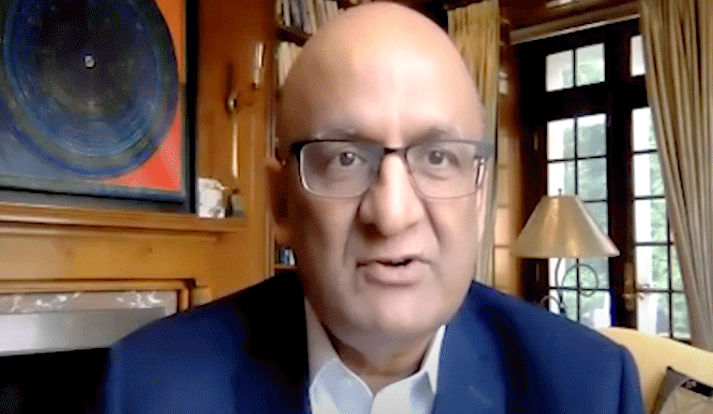
How to sustain moral values when one rises to powerful positions? “The only answer I was able to come up with is the Indian word ‘Sangath’, that is who you surround yourself with. This is a powerful idea, but more critical is for you to create the right conditions and be open for those around you to point your mistakes. For you need truth speakers as friends to avoid moral failures on your part,” said Nitin Nohria, dean, Harvard Business School. He was speaking at a session on ‘Moral humility’ at the virtual Rotary institute chaired by DGN Sandip Agarwalla, RID 3141.
Having truthful friends and peers around you and be open to their criticisms is the only “systematic defence I have seen on people who remained morally humble at powerful roles and top positions over time,” said Nohria. Some of the value failures were exposed more deeply in this pandemic time, but “as an eternal optimist I feel that if such moral failures are revealed more sharply now, then there are opportunities for recovery as well.”
The Four-Way Test of Rotary is extraordinary and if we apply it today, how much better the world will be, he said. “Covid has revealed so much of inequities and unfairness in the society that the cost of any tragedy is borne mostly by the vulnerable groups, far more than those privileged to escape into the comfort of their homes and follow social distancing norms to protect themselves,” he explained.
Why do seemingly good people behave badly at times? When we see examples of ethical or moral failures, our immediate reaction is to say that person was bad. Why is it so, asked Agarwalla. “This is one of the greatest moral questions that people have asked for a long, long time and I came to think of this issue deeply through the work of social psychologist Stanley Milgram, a professor at the Yale University.”
Collective evil
In the aftermath of World War II, Milgram, a Jew, could not understand how the entire German people could have done what they did during the Holocaust. Is it possible that all Germans at that time were evil? “To believe that, it requires in some ways to lose your humanity too.” For how could there be a group of people where everyone is personally evil? He conducted an experiment by inviting random people from the streets and putting them in a setting in which there was an instructor and a learner.
If the learner made a mistake, he was given electric shocks to prevent such things and do better next time. “The rest of the participants did not know that the learner was in fact a confederate of the instructor, and not a real learner. The game was rigged as the instructor and learner were chosen by draw of cards. However, two-thirds believed that the learner was genuine. You and I would have ended up getting electric shocks. As innocent persons, just because someone in authority said it, you are supposed to follow the instructions,” said Nohria.
There are many societal influences that might cause us to behave in ways that belie our own moral values such as justifying certain things, actions due to prevailing norms (such as we have to bribe our way to get things done), pressure of incentives and time pressure, among others.
American racism
People affected by racism in the Covid times were disproportionately from the under-represented minority community in the US. “The killing of George Floyd led the American people coming to terms with the racial and inequality issues in their country,” he opined. How is it the case that again and again, we see innocent black men and women being killed by police in horrifying circumstances, he queried. “The sharp manner in which our moral failures are being revealed now will lead us to a moral awakening in this pandemic time,” he added.





